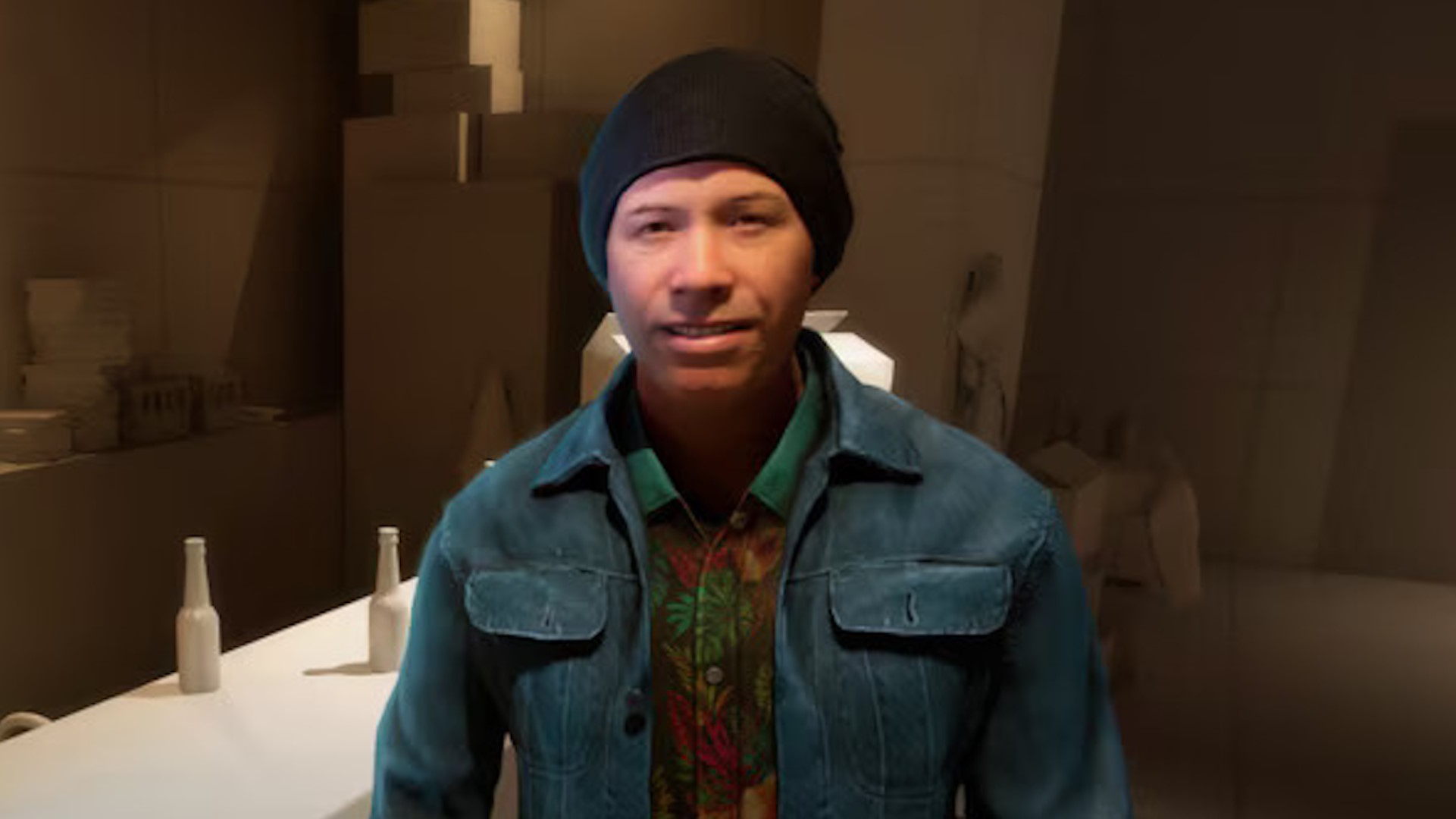Ubisoft insists yet again that its uncanny AI-generated 'NEO-NPCs' will make games 'more alive and richer', whatever that means
Are you feeling immersed yet?

Ubisoft wants investors to know that it's still all-in on the AI-generated NPCs thing, according to a recent Q&A session (which you can access on the Ubisoft website). Fielding queries after a financial report, CEO Yves Guillemot insisted that there's still a bright future for uncanny NPCs delivering awkward and stilted performances with precious little intention behind them.
Alright—that's not entirely fair. There are some practical uses for AI in game development, either for boring, non-immersive grunt work that no-one else wants to do—as former WoW lead Ghostcrawler puts it, "crappy" tasks like "making the cliffs where the continent sloped into the ocean". Alternatively, you can make the uncanny nature of said voicelines the point, while making sure the actors the AI is trained on get decent royalties out of the deal, I;E, what Stellaris is doing with its recent DLC.
But when Ubisoft touted its NEO NPCs during GDC, I didn't exactly see much convincing evidence of a revolutionary new technology, and certainly not a "start of a fantastic paradigm shift". Still, Ubisoft appears to be all-in on making these things happen (thanks, Gamesradar).
"We have two groups working on [generative] AI," Guillemot says, with one squad working on potential use cases for "marketing, sales, IT, legal, and all the other jobs" for efficiency and automation's sake. "That's coming along quite well.
"On the other side, we can improve the quality of our games in making those games more alive—we did present NEO NPCs at the last conference, and it was well appreciated"—sure, why not—"we will be able to [use it] in our games, and make them more alive and richer. I expect a lot from [generative] AI in our games to make our games more interesting, and for people to really have a personalised experience."
The phrase "more alive and richer" doesn't exactly spring to mind when looking at this (admittedly early) prototype. Maybe I'm just being a curmudgeon—here's a demonstration courtesy of Corbin Brown on YouTube, so you can judge for yourself—but whole-cloth AI generated characters have given the exact opposite feeling of aliveness and richness.
I think what makes me roll my eyes whenever I hear AI caged in these glowing terms is that it always cites the tech's exact weaknesses—it's just bad at delivering content that actually feels detailed, deliberate, purposeful, or rich—and praises it as a potential strength. It feels like developers have already figured out what it's good at right now, so why are we trying to turn the equivalent of a printing press into a best-selling author?
Keep up to date with the most important stories and the best deals, as picked by the PC Gamer team.
Ultimately, good stories are deliberate, and deliberateness is what AI lacks in empty spades. Astarion from Baldur's Gate 3 bustles with life and richness, for example, and there's nary an AI generation in sight as far as he's concerned—all a handwritten story really sacrifices is reactivity. Personally, I don't think being able to quip back at me about getting some burgers after we save the Sword Coast would be worth ridding someone like Gale of his charming mien.
But maybe there's some grunt work equivalent these NEO NPCs'd be good for—even then, I find it hard to think of anything.
Take random NPC banter, for example. At first glance, it might seem like something you could get an AI to do. But even the most random of background conversations (in a well-written game, at least) will be used deliberately to worldbuild, inform you of story beats, characterise NPCs off-screen, and so on.
Anyway, maybe Ubisoft will prove me wrong, and in 10 years I'll be playing a forever game that makes me cry every other minute with stirring emotional performances cranked straight out of an algorithm—but I still think that the idea of a game you can play forever is something a lot of people think they want, but would get bored of very quickly.

Harvey's history with games started when he first begged his parents for a World of Warcraft subscription aged 12, though he's since been cursed with Final Fantasy 14-brain and a huge crush on G'raha Tia. He made his start as a freelancer, writing for websites like Techradar, The Escapist, Dicebreaker, The Gamer, Into the Spine—and of course, PC Gamer. He'll sink his teeth into anything that looks interesting, though he has a soft spot for RPGs, soulslikes, roguelikes, deckbuilders, MMOs, and weird indie titles. He also plays a shelf load of TTRPGs in his offline time. Don't ask him what his favourite system is, he has too many.

